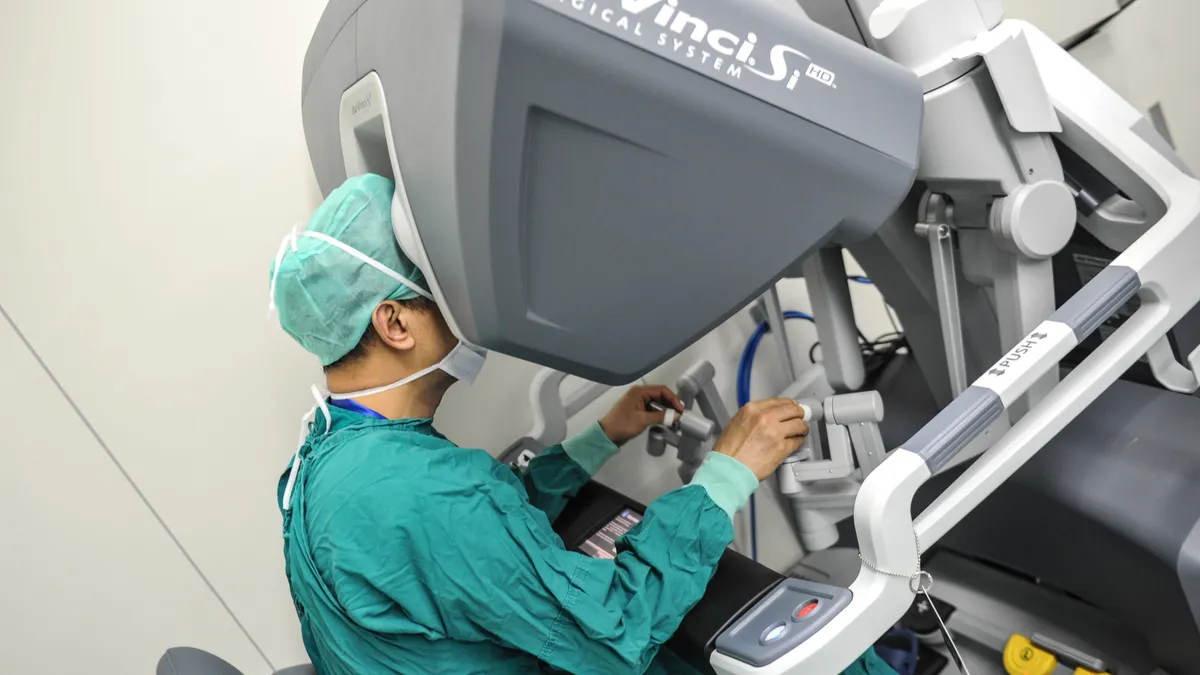Dive Brief:
- A U.S. appeals court has sided with Intuitive Surgical over Johnson & Johnson’s Ethicon in two disputes over surgical cutting and stapling patents.
- The Patent Trial and Appeal Board originally found that claims related to two challenged patents, '287 and ‘379, "are unpatentable as obvious." Ethicon appealed, but in decisions reached last week and on Monday, the Court of Appeals of the Federal Circuit upheld the original rulings.
- If Ethicon’s appeals had succeeded, it may have affected imports of Intuitive’s SureForm staplers and associated reload cartridges. Intuitive’s success in the appeals court reduces that risk.
Dive Insight:
Ethicon and Intuitive have been embroiled in a legal battle for almost five years. The dispute began when Ethicon alleged Intuitive’s EndoWrist Stapler instruments infringed on six of its patents. At that time, ‘287 and ‘379 were outside of the scope of the case. Ethicon expanded its dispute to cover more patents, including ‘287, when it filed a complaint related to Intuitive’s SureForm 60 Staplers in 2018. Patent ‘379 came into play when Ethicon filed another complaint in 2019.
The argument over ‘379 has since become central to the case. In June 2021, a judge ruled that SureForm staplers and associated reload cartridges infringe on two claims of the ’379 patent. Later in the year, the U.S. International Trade Commission also ruled the SureForm products infringe on the ‘379 claims but suspended the imposition of a remedial order until the validity of the patent can be determined.
Intuitive has warned the remedial order could stop it from importing the affected SureForm products into the U.S. or necessitate “workarounds,” although, based on the information available to it as of last month, it did not expect losses arising from the case to be material.
The robotic surgery specialist gained the upper hand in 2020 when the Patent Trial and Appeal Board ruled claims related to ‘379 are unpatentable as obvious. Ethicon’s appeal made the case that the board committed a legal error by placing the burden of proof on the patent holder. The appeal also argued there is a lack of substantial evidence to support the board's finding that a person of ordinary skill in the art would have a reasonable expectation of success when combining two earlier patents related to ‘379.
Ethicon convinced one judge of the merits of its argument but failed to win over their colleagues, leading to an overall ruling to uphold the original decision and a dissenting opinion. The dissenting opinion cited a Supreme Court ruling to make the case that the other judges were wrong to rule in favor of Intuitive.
In the other case, Ethicon challenged the board’s “fact findings regarding analogous art and motivation to combine prior art references” conclusion that claims related to ‘287 are unpatentable as obvious. The appeal court found Ethicon’s argument to be “without merit” and upheld the original decision.
The decisions move part of the patent dispute between Intuitive and J&J closer to conclusion. A trial between Intuitive and J&J’s Auris Health unit is scheduled for next year.










